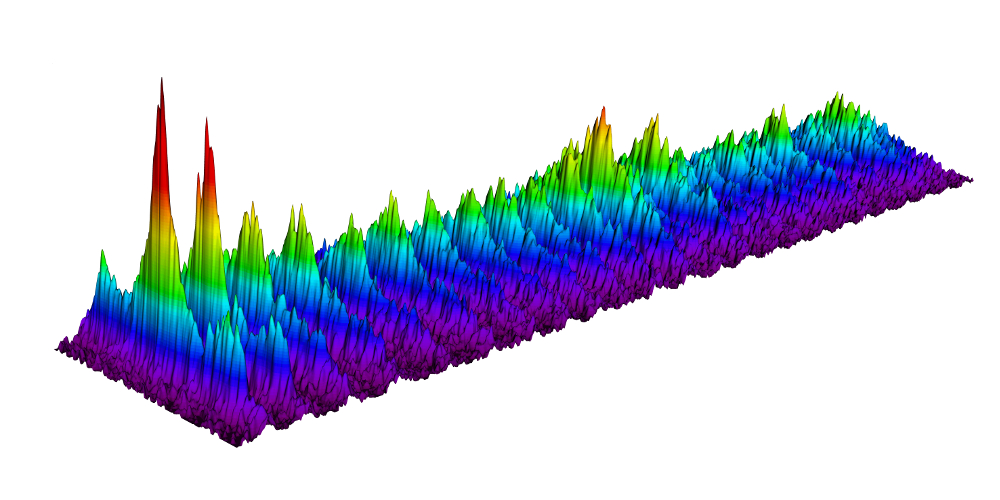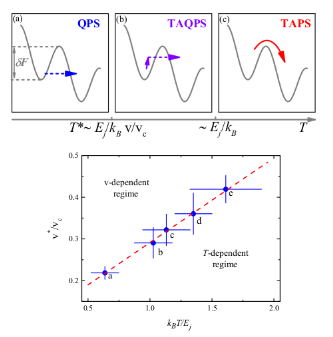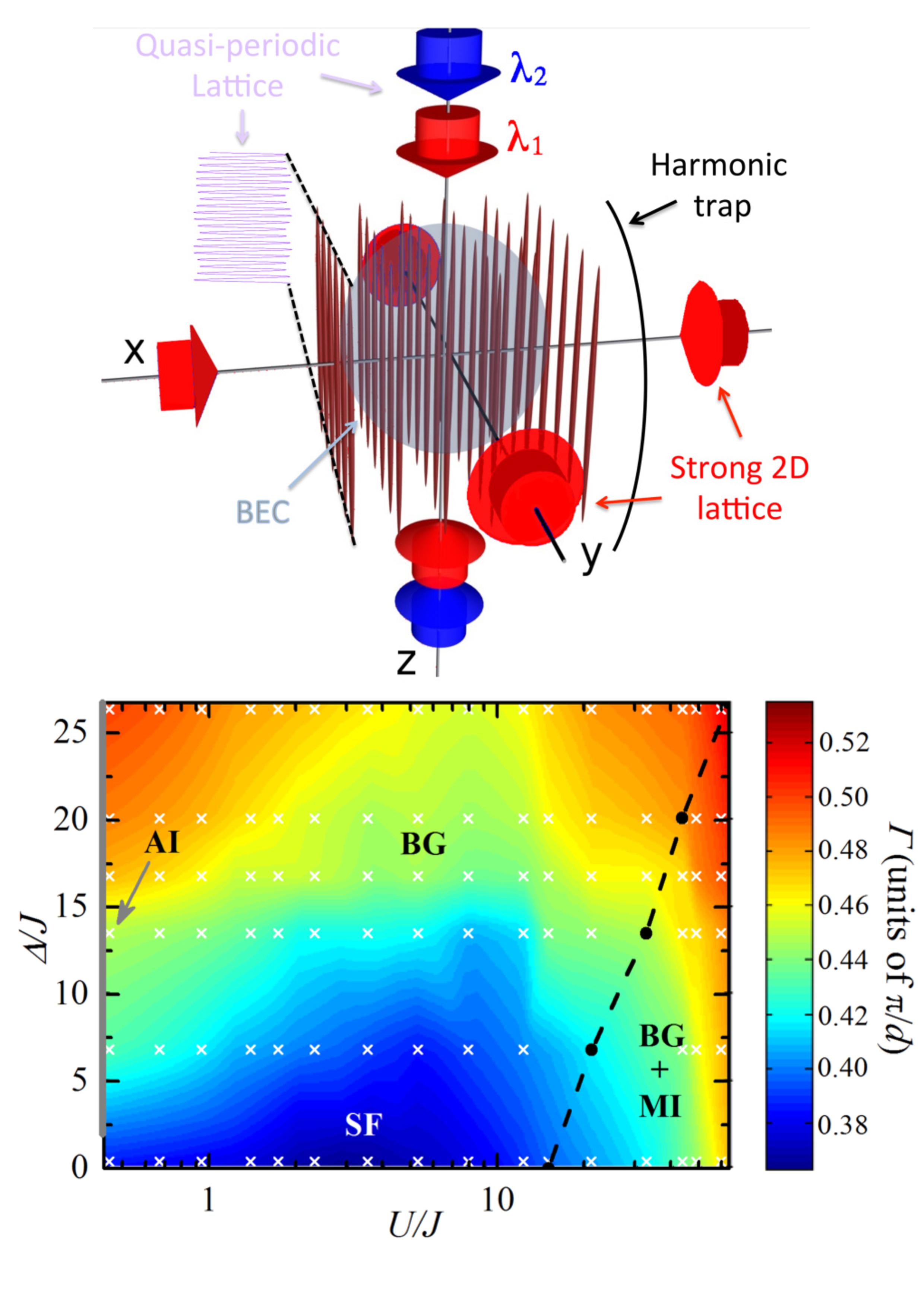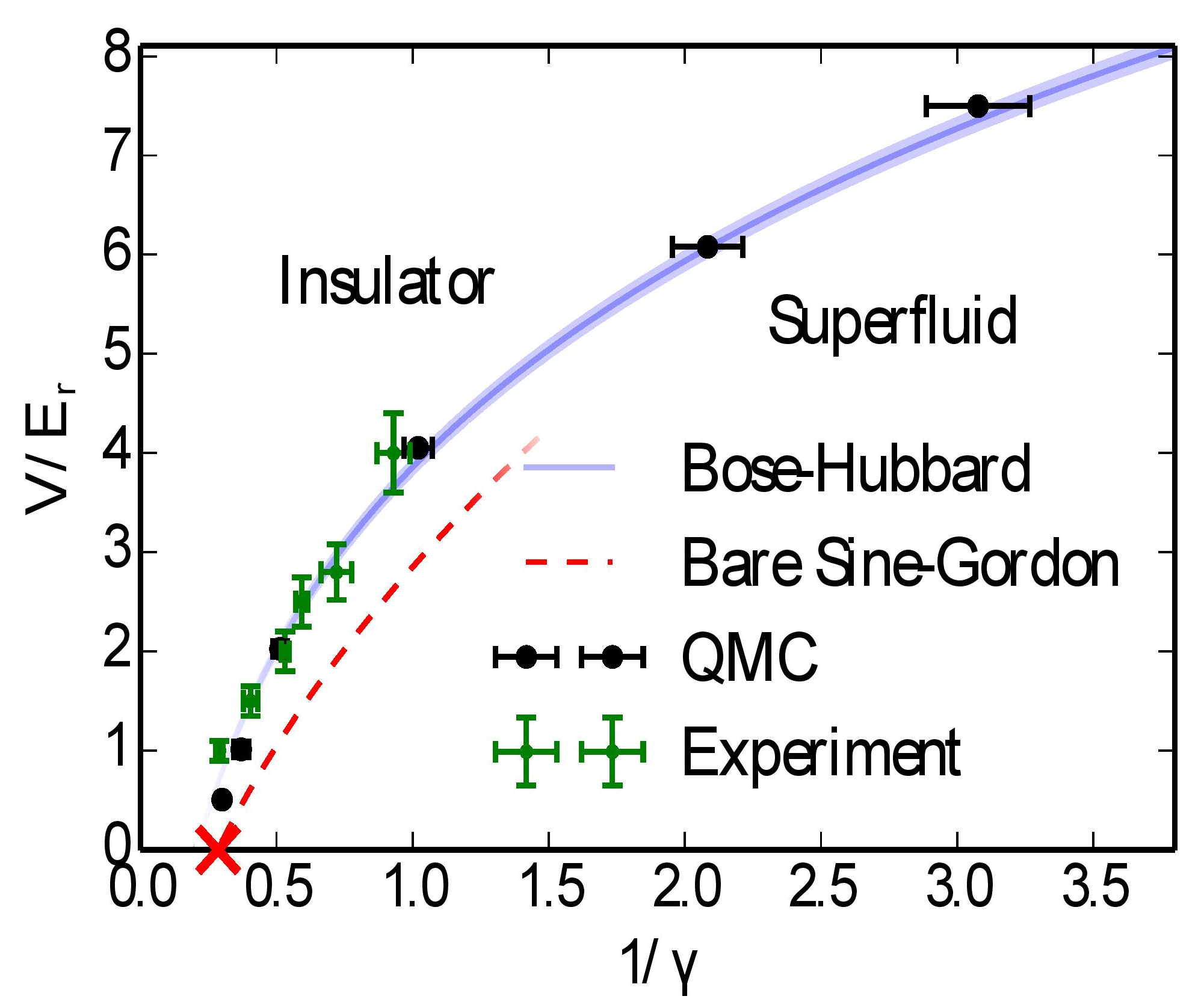 |
Quantum phase slips, i.e., the primary excitations in one-dimensional superfluids at low temperature, have been well characterized in most condensed-matter systems, with the notable exception of ultracold quantum gases. Here we present our experimental investigation of the dissipation in one-dimensional Bose superfluids flowing along a periodic potential, which show signatures of the presence of quantum phase slips. In particular, by controlling the velocity of the superfluid and the interaction between the bosons we are apparently able to drive a crossover from a regime of thermal phase slips into a regime of quantum phase slips. Achieving a good control of quantum phase slips in ultracold quantum gases requires to keep under control other phenomena such as the breaking of superfluidity at the critical velocity or the appearance of a Mott insulator in the strongly correlated regime. Here we show our current results in these directions. S. Scaffidi Abbate, et al., |
 |
We are pleased to announce the workshop of the EU project QUIC (Quantum Simulations of Insulators and Conductors) which will take place at LENS on April, 20th and 21st. The talks will be open and there will be time for lab visits and scientific discussions for everyone interested, not only for the QUIC team members. A detailed program of event can be found here |
 |
Quantum phase slips are the primary excitations in one-dimensional superfluids and superconductors at low temperature, but haven’t been so far detected in ultracold quantum gases. We have now studied experimentally the nucleation rate of phase slips in one-dimensional superfluids realized with ultracold quantum gases, owing along a periodic potential. We have observed a crossover between a regime of temperature-dependent dissipation at small velocity and interaction and a second regime of velocity-dependent dissipation at larger velocity and interaction. This behavior is consistent with the predicted crossover from thermally-assisted quantum phase slips to purely quantum phase slips. L. Tanzi, et al., |
 |
An open issue in quantum physics is to understand the interplay of disorder and interactions, which has been predicted to give rise to exotic states of matter such as quantum glasses or many-body localization. In a collaboration with theorists in Geneva and in Orsay, we have employed ultracold atoms with controllable disorder and interaction to study the paradigmatic problem of disordered bosons in the full disorder-interaction plane. Combining measurements of coherence, transport and excitation spectra, we have got evidence of an insulating regime extending from weak to strong interaction and surrounding a superfluid-like regime, in general agreement with the theory. For strong interaction, we have revealed the presence of a strongly-correlated Bose glass coexisting with a Mott insulator. We have analyzed the finite-temperature effects on the phase diagram by comparing experimental results to exact diagonalization for small-sized systems and to density-matrix renormalization group (DMRG) computations. At weak interactions, we have found short thermal correlation lengths, indicating a substantial impact of temperature on the system coherence. Conversely, at strong interactions, the obtained thermal correlation lengths are significantly larger than the localization length, and the quantum nature of the T = 0 Bose-glass phase is preserved up to a crossover temperature that depends on the disorder strength. Furthermore, in the absence of disorder, by comparing experimental results to quasiexact finite-T DMRG computations, we can estimate the temperature in the experimental system. C. D’Errico et al. L. Gori et al. |
 |
The Mott insulator is a well know quantum phase appearing in periodic potentials at integer particle fillings. In ordinary matter the potential strength cannot be changed, and it is therefore impossible to study the fate of the Mott insulator for vanishing potential strength. We have now employed an ultracold quantum gas to investigate the superfluid-insulator transition of one-dimensional bosons in shallow periodic potentials. Experimentally, we have performed transport measurements and we have analyzed them with a phase slip based model to accurately determine the Mott transition. We have compared the experimental results with a theoretical analysis based on quantum Monte Carlo simulations in continuum space and Luttinger liquid approach. Experiments and theory are in excellent agreement. Our study provides a quantitative determination of the critical parameters for the Mott transition and defines the regimes of validity of widely used approximate models, namely, the Bose-Hubbard and sine-Gordon models. G. Boéris et al. |


